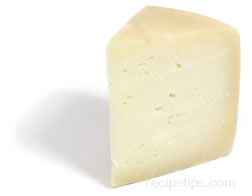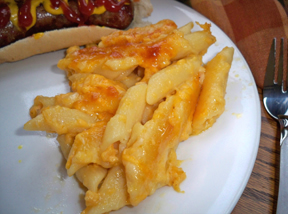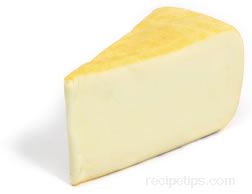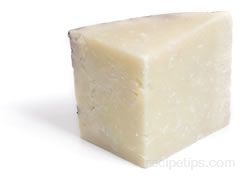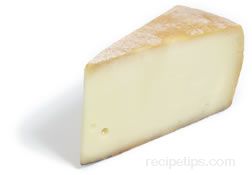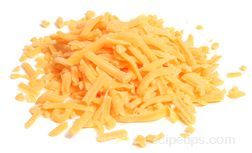A variety that is often eaten young is known as Pecorino Toscano, made in Tuscany, Italy. As a young cheese it has a whiter colored meat that is creamier in texture, providing a somewhat nutty flavor. Versions of this cheese are also made with cow's milk, which can typically be detected by the yellowish tint to the cheese. Another Tuscan Pecorino is the Pecorino Senese or Senesi, which is a cheese that has a reddish rind due to the rind being rubbed with tomato paste. In years past, the rind was rubbed with sheep's blood and noted for its red exterior however, regulations enacted for the cheese have substituted tomato paste in order to maintain the red appearance of past cheeses.
The most popular of the aged pecorino is the Pecorino Romano, which has a hard yellow rind with a yellowish white interior. This cheese is typically aged for 8 months to a year before being eaten. Sharp in flavor, it is a cheese that is thinly sliced or served grated.
Pecorino Sardo, which may also be referred to simply as Sardo or as Fiore Sardo, is a type of Pecorino made on an island in the Mediterranean Sea. Although there are a number of Sardo cheeses produced throughout the world which are not actual Percornio Sardo, this type of cheese is produced only in Sardina, Italy. Pecorino Sardo is produced to be eaten as a young cheese or as a matured cheese, very similar in flavor to Pecorino Romano, but milder. It can be served as a table cheese or added to sauces when a milder tasting Pecorino is desired.
Pecorino Siciliano is the name for the Pecorino cheeses produced in Sicily, Italy. The most well known of their cheeses is the Canestrato, or Incanestrato as it is also known, and the Pepato. Canestrato is a made by placing the cheese curds in baskets where the whey is drained off as the curds bond together with the irregular shape of the basketweave forming the shape of the outer rind. Aged for up to 6 months the cheese is sold as a young cheese while the sharper and more aromatic cheeses aged for up to a year are sold as grating or slivered snacking cheese with meats, breads, and over pasta. The Sicilian Pepato is a variety of Pecorino that has black peppercorns added to the meat of the cheese to enhance the flavor. Available as fresh or an aged cheese, Pecorino Pepato has a flavor that is mildly salty and peppery that becomes spicier with age. As it ages, this cheese becomes a good cheese for grating to be used for baked potatoes, grilled vegetables such as corn on the cob, or for pasta dishes. Select Pepato that has a bone white color and a mild aroma for best results.
Pecorino cheeses can be a good substitute to Parmesan, although sharper in flavor than Parmesan, all aged varieties are considered to be good grating cheeses for use in sauces and salads or on pasta. Pecorino can also be served as a dessert cheese, with honey drizzled over the top. As the Pecorino ages, they may become too dry and too strong or "sheepy" tasting. Select young to year old chesses, making sure they are not cracked or molded in appearance.

